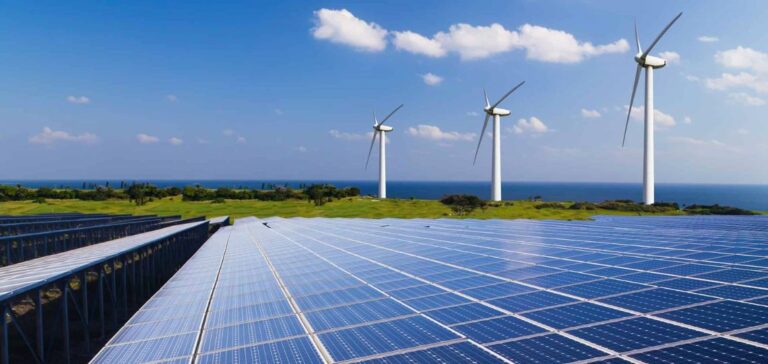BloombergNEF reports that developing countries are raising the bar on their renewable energy policy goals.
Real progress
BloombergNEF has released the latest edition of its annual Climatescope survey. It indicates that while 92% of emerging markets are setting renewable targets, the results appear to be questionable. However, in the context of the COP27, political decision-makers seem to have a stronger interest in the climate.
According to BloombergNEF 9 out of 10 developing countries are committed to consuming certain volumes of renewable energy within specific time frames. The report indicates that rising fossil fuel prices are pushing countries to respond. Moreover, the attractiveness of renewable energy prices accentuates this phenomenon.
On the other hand, it could also be a genuine fear related to climate change. However, according to BloombergNEF, this announcement is historic. In fact, the increase in engagement is estimated at 82% compared to last year. In addition, this rate was 67% in 2019.
A detailed investigation
BloombergNEF’s Climatescope valuation tool includes detailed information on 136 markets around the world. The study covers 107 emerging markets and 29 developed nations. It is used to assess the current clean energy policy of a developing country.
BloombergNEF’s Climatescope also provides data on the financing conditions that can lead to the deployment of capital. In addition, the tool covers a wide field including the transportation and building sectors. In addition, the results for these areas will be available in a few weeks.
The tool includes data on renewable energy investment and deployment trends. The potential of each market is rated from 0 to 5. Thus, this analysis by BloombergNEF places Chile in the lead followed by India and mainland China.
Political continuity
BloombergNEF reports that policymakers in emerging countries will need to align their renewable implementation policies. These policies will address the implementation of renewable energy in the short and long term. However, the report identifies signs that already promise positive results
56% of emerging markets, compared to 49% in 2021, have policies to conduct reverse auctions. For example, the companies responsible for delivering clean energy contracts will engage in price competition in a bidding process. In addition, net billing also increased by 4% compared to last year.
Ethan Zindler, head of Americas research at BloombergNEF, says:
“A program to hold reverse auctions for clean energy delivery contracts is only useful if a country actually executes those auctions. We’ve seen many examples of countries that have set long-term goals, adopted short-term policies, but failed to implement them properly.”
Thus, encouraging initiatives such as the commitment of countries are visible. However, the report’s analysis indicates that monitoring is sometimes a pitfall.





















